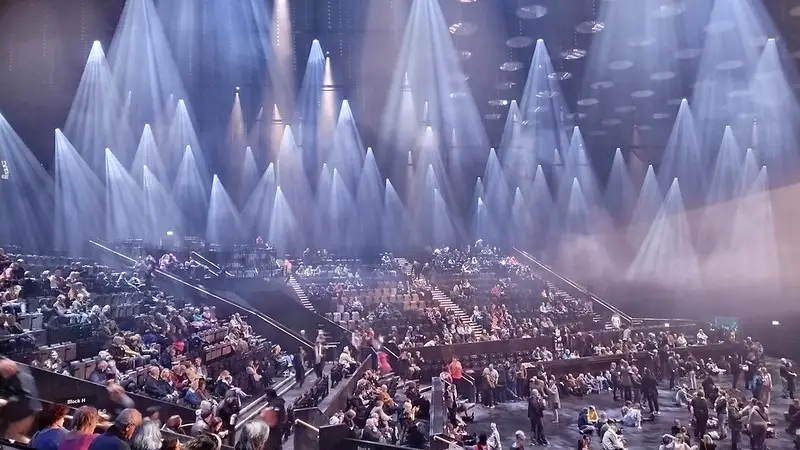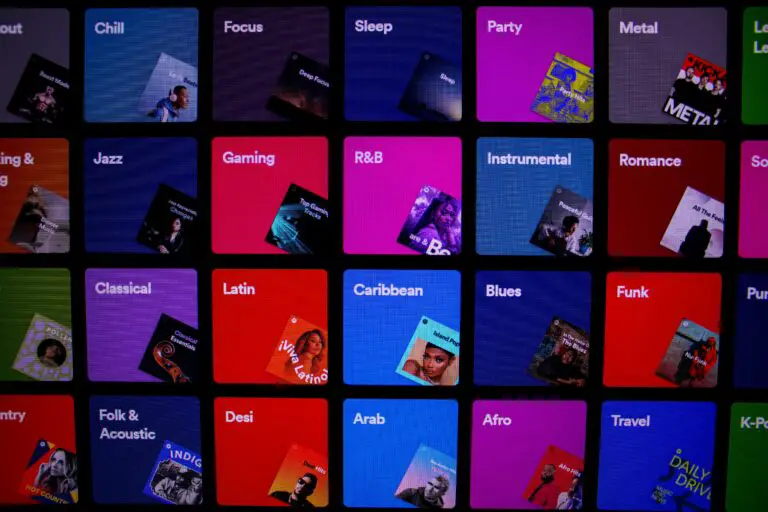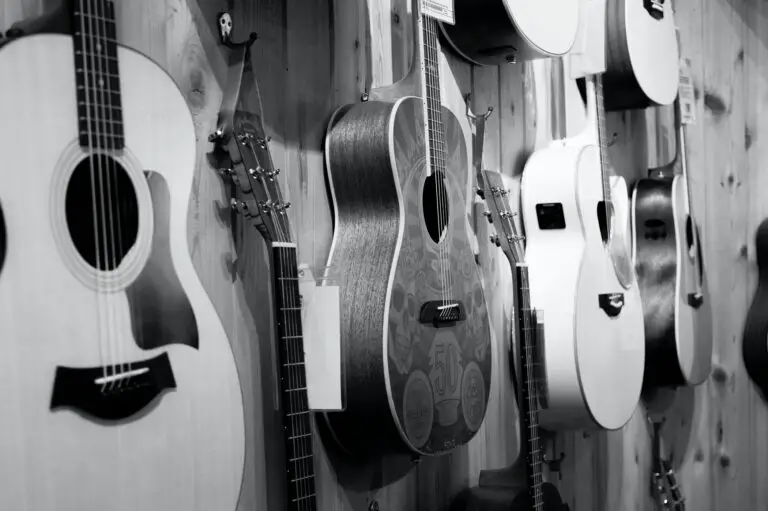Virtual Concerts vs Live Shows: The Ultimate Showdown
Once upon a time, the debate over virtual concerts vs live shows seemed unthinkable. However, the rise of streaming and technology has led to virtual shows becoming just as lucrative as a live event.
The battle between virtual concerts vs live shows has arisen from streaming trends, a rise in access on social media and rising ticket prices although fans still ultimately prefer the live experience.
Live shows still are a lucrative business with stadium tours setting records to this very day. However, cultural phenomena such as the COVID-19 pandemic gave virtual concerts a chance to prosper worldwide.
It means artists now have multiple ways to generate revenue by doing live performances. However, is the battle between virtual concerts vs live shows going to change how we see our favourite acts live?
The Rise Of Virtual Concerts
It’s hard to think that virtual concerts would ever come to pass. Why watch a band on a screen if you can see them live? However, the world has changed to the point that virtual concerts are now a beneficial part of the industry for fans and audiences.
If you go back to the COVID pandemic of 2020, the world came to a shutdown. For musicians, one of their biggest revenue generators was gone. As was a way for fans to experience their favourite songs in a real-world setting. No one knew how to adapt.
And that’s when virtual concerts came into their own. Bands of all levels of fame took to social media to give improvised live streams performing their biggest hits. It gave birth to a new form of live show. One which gave fans unique experiences to connect with artists.
Through streaming and virtual platforms, fans could interact directly with the artists as they perform. For artists, they could create new revenue streams through exclusive chats, performances and access levels. It gave birth to a whole new form of music consumption.
For example, rap star Travis Scott set the world alight by doing exclusive virtual shows on Fortnite in 2021 as part of the AstroWorld tour. These 9-minute virtual sets generated over $20 million during their initial run. That was almost as much as Scott’s infamous Astroworld live show which garnered $56 million over four months. Proof that virtual shows are a money experience.
A Tried & Tested Format
Despite the rise of virtual shows, fans are always going to clamour to see their favourite acts in person. The chance just to see a star in person is enough to grab attention. Let alone hearing it live and feeling the atmosphere of a stadium coming alive.
It’s why the live scene has continued to smash records both in terms of gate revenue and attendance around the world. Take a look at Taylor Swift’s Eras tour – even just one small portion of it. In February 2024, Swift’s Australian leg played 7 shows in both Melbourne & Sydney. These shows averaged an attendance of 90,000 people each night. The end result?
Well, according to The Australian Financial Review, the tour earned Swift over $100 million for one week of shows. Not only that, it went on to generate an estimated $10 million for both cities due to fans flocking to the cities to attend a show. It’s proof that there’s plenty of life in the virtual concert vs live show argument – especially when drawn based on numbers.
Unifying Fans Together
When it comes to the virtual concerts vs live show battle, there’s always the argument about how fans will feel about the issue. One side – fans across the world can access and share stories when on a virtual platform. However, going to a physical show uniting strangers through music brings people much closer together. So what ultimately comes out on top?
According to Dr Michelle Phillips, the live experience still comes out on top. Phillips, Senior Lecturer in Music Psychology at the Manchester-based Royal Northern College of Music, alludes as to why this might be.
“Research on what people value in a live music experience suggests feeling connected with other audience members, and with the performer, is important to people,” she explains.
“Including a chat stream is better than not having a way for audience members to interact. But it still doesn’t provide quite the level of connection that in-person events allow for,” Phillips continues.
However, virtual concerts are slowly adapting and finding new ways to help bring fans together in new ways. Games such as Fortnite, Pub and the Metaverse give fans the chance to use virtual characters to interact with each other and the artist. It’s something that Dr. Phillips sees potential in.
“Many platforms are trying to do this,” she explains. “What people consider “liveness” to mean is a mixture of physical presence, immersion, atmosphere and being there to have a sense of shared experience.”
“It’s those that a virtual setting world would need to recreate,” she adds.
Enjoying Unique Moments
Perhaps one thing that the virtual concerts vs live shows debate often raises is the chance to experience unique moments. Something fans would only experience at one particular time.
It’s something that does give live shows a particular edge compared to the virtual experience. An example of this was when the Foo Fighters toured Australia in December 2023. It was the band’s first set of stadium shows since the passing of long-time drummer Taylor Hawkins in March 2022. During the band’s first show in Melbourne, frontman Dave Grohl was brought to tears as a flock of birds flew over right when they started playing their tribute to Hawkins. It’s the gravity of feelings like that which unites fans in moments few at the stadium would forget.
This uniqueness and FOMO factor is something that Dr. Phillips emphasizes about the beauty of being at a live show. “The aspects which makes a live music experience is special is knowing you were there in the moment.”
“Being at a live event isn’t just about the set list. It is about how being there at that occasion makes you feel,” she continues. “This can be a large part of what you remember and what leaves an impression on you.”
Seeing and experiencing those kinds of moments is something that virtual shows lack and hinders them considerably within the virtual concert vs live shows battle.
Exploring The Future
The future of both platforms continues to raise some questions. However, the question isn’t about what is more lucrative. Rather it’s how will both co-exist and evolve to become separate entities that benefit both artists and fans.
One thing that is on the table is creating a fan experience where a virtual platform might endure the legacy of an artist’s work. An example of this is using new technologies to re-create famous shows to open up artists to a whole new experience.
For example, Swedish pop icon ABBA launched “The ABBA Voyage” to give old and new fans a chance to enjoy their work. The show itself sees the band “performing” their biggest hits using a mix of old and new music and their presence projected through a mix of motion capture, lighting and holographic technology in a custom-built arena.
It’s these types of performances that will allow virtual concerts to exist as a separate entity and continue to evolve over the coming years. Something that is not lost on Dr Phillips either. “The ABBA experience in London is an interesting example. The performers are avatars but many people who attend say it is just like watching live performers.”
Ending The Virtual Concerts vs Live Shows Battle
In the end, it’s clear to see that the virtual concerts vs live shows battle is forging a new path. There is a market for virtual concerts – proven by the exploration of concerts in games and the success had by the likes of Travis Scott.
However, live shows continue to be where the big money lies. Both in drawing numbers and creating moments that fans will remember. It’s something that music fans will always flock towards knowing that the real thing can’t be replaced by a virtual equivalent.
Yet, the feeling is that the two platforms can survive side by side – with virtual shows carving their niche. This feeling is something that Dr. Phillips is keen to see evolve.
“Perhaps what we shouldn’t be trying to do is replicate a live music experience virtually. But, rather, creating whole new ways of experiencing concerts given what technology allows us to do.”
“Perhaps we are on the brink of an entirely new way of engaging with music,” she adds. And that mindset is why the virtual concerts vs live shows battle can be settled.
Special thanks to Dr Michelle Phillips.









